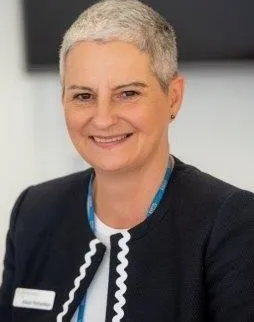Project overview
This study will answer the question can virtual self- help cognitive behavioural therapy (CBT) delivered by the prostate cancer clinical nurse specialist (CNS) team reduce the impact of HFNS in men with prostate cancer undergoing ADT at 6 months post randomisation?
Prostate cancer is the most common cancer in UK men, with rising incidence now reaching around 48,000 per year. Androgen deprivation therapy (ADT) is a hormonal treatment for prostate cancer which about half of patients receive at some point. Although ADT is an effective treatment, up to 80% of men suffer from hot flush and night sweats (HFNS). HFNS can be both frequent and severe and lead to a significant decrease in quality of life. They may also cause anxiety, low mood and sleep disturbances. HFNS can occasionally be so severe and debilitating that patients become prepared to stop ADT altogether despite the increased risk of disease relapse or reduced survival. Unfortunately, there are limited effective treatment options for men with HFNS.
This study will test a virtual self-help CBT intervention, delivered by a patient’s existing prostate cancer clinical nurse specialist (CNS) team. It will determine whether ADT induced HFNS in men with prostate cancer can be impacted by a virtual CBT intervention delivered by the existing prostate cancer CNS team. If found effective, there is potential to incorporate this intervention into currently existing staffing structures designed to support men living with and beyond cancer.
The research team is led by Professor Simon Crabb , and supported by staff from the the Southampton Clinical Trials Unit and PCaSO, a prostate cancer support organisation.
Prostate cancer is the most common cancer in UK men, with rising incidence now reaching around 48,000 per year. Androgen deprivation therapy (ADT) is a hormonal treatment for prostate cancer which about half of patients receive at some point. Although ADT is an effective treatment, up to 80% of men suffer from hot flush and night sweats (HFNS). HFNS can be both frequent and severe and lead to a significant decrease in quality of life. They may also cause anxiety, low mood and sleep disturbances. HFNS can occasionally be so severe and debilitating that patients become prepared to stop ADT altogether despite the increased risk of disease relapse or reduced survival. Unfortunately, there are limited effective treatment options for men with HFNS.
This study will test a virtual self-help CBT intervention, delivered by a patient’s existing prostate cancer clinical nurse specialist (CNS) team. It will determine whether ADT induced HFNS in men with prostate cancer can be impacted by a virtual CBT intervention delivered by the existing prostate cancer CNS team. If found effective, there is potential to incorporate this intervention into currently existing staffing structures designed to support men living with and beyond cancer.
The research team is led by Professor Simon Crabb , and supported by staff from the the Southampton Clinical Trials Unit and PCaSO, a prostate cancer support organisation.
Staff
Lead researchers
Other researchers
Collaborating research institutes, centres and groups
Research outputs
Simon Crabb, Alannah Morgan, Myra S. Hunter, Evgenia Stefanopoulou, Gareth Griffiths, Alison Richardson, Deborah Fenlon, Louisa Fleure, James Raftery, Cherish Boxall, Sam Wilding, Jacqueline Nuttall, Zina Eminton, Emma Tilt, Alice O'Neill, Roger Bacon & Jonathan Martin,
2023, Trials, 24(1)
Type: article

